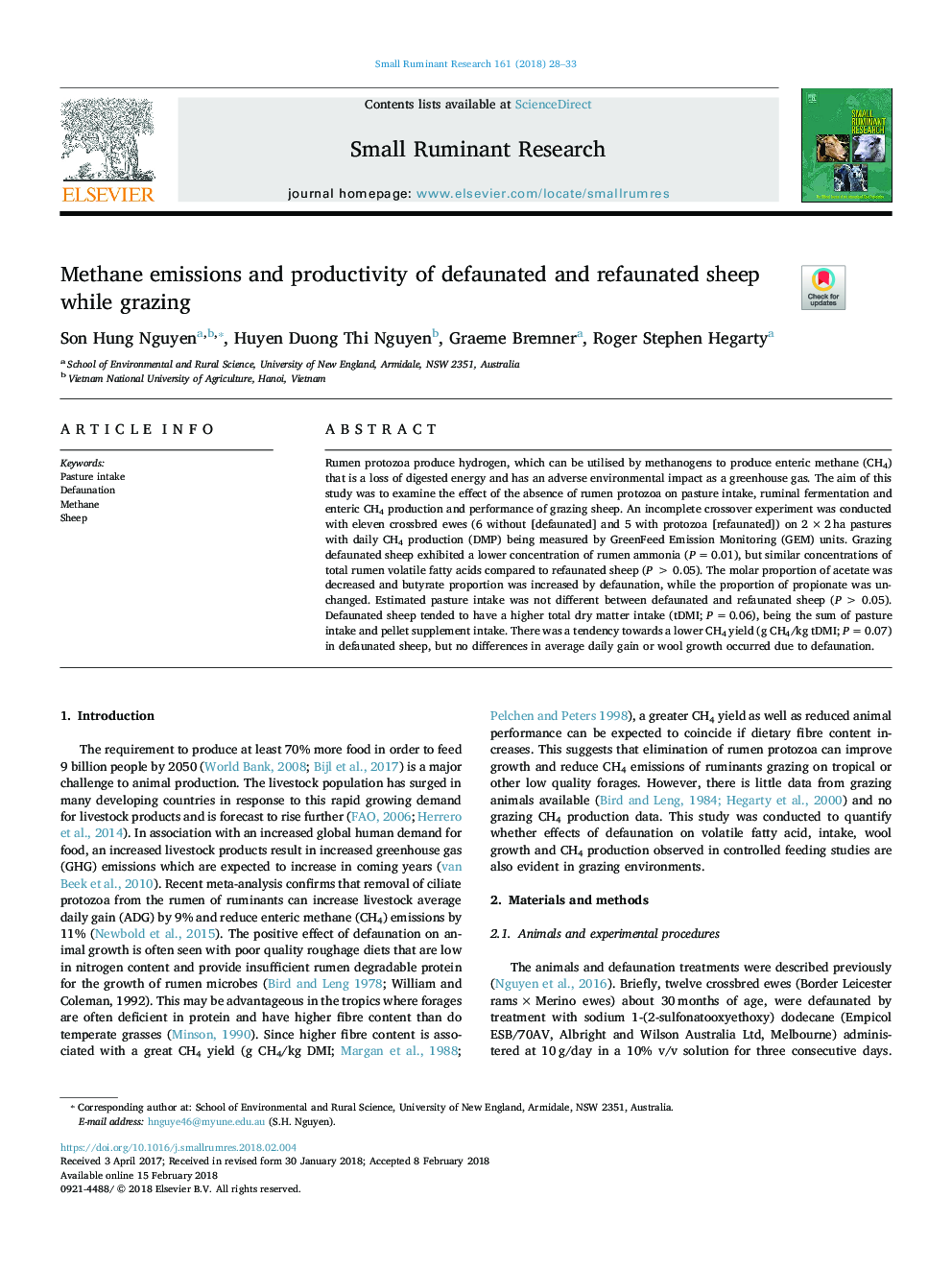| کد مقاله | کد نشریه | سال انتشار | مقاله انگلیسی | نسخه تمام متن |
|---|---|---|---|---|
| 8504225 | 1554331 | 2018 | 6 صفحه PDF | دانلود رایگان |
عنوان انگلیسی مقاله ISI
Methane emissions and productivity of defaunated and refaunated sheep while grazing
ترجمه فارسی عنوان
انتشار گازهای گلخانه ای و بهره وری از گوسفندانی که فریب خورده و رفع شده اند، در هنگام گرسنگی
دانلود مقاله + سفارش ترجمه
دانلود مقاله ISI انگلیسی
رایگان برای ایرانیان
کلمات کلیدی
مصرف چاودار، پیش فرض متان، گوسفند،
موضوعات مرتبط
علوم زیستی و بیوفناوری
علوم کشاورزی و بیولوژیک
علوم دامی و جانورشناسی
چکیده انگلیسی
Rumen protozoa produce hydrogen, which can be utilised by methanogens to produce enteric methane (CH4) that is a loss of digested energy and has an adverse environmental impact as a greenhouse gas. The aim of this study was to examine the effect of the absence of rumen protozoa on pasture intake, ruminal fermentation and enteric CH4 production and performance of grazing sheep. An incomplete crossover experiment was conducted with eleven crossbred ewes (6 without [defaunated] and 5 with protozoa [refaunated]) on 2â¯Ãâ¯2â¯ha pastures with daily CH4 production (DMP) being measured by GreenFeed Emission Monitoring (GEM) units. Grazing defaunated sheep exhibited a lower concentration of rumen ammonia (Pâ¯=â¯0.01), but similar concentrations of total rumen volatile fatty acids compared to refaunated sheep (Pâ¯>â¯0.05). The molar proportion of acetate was decreased and butyrate proportion was increased by defaunation, while the proportion of propionate was unchanged. Estimated pasture intake was not different between defaunated and refaunated sheep (Pâ¯>â¯0.05). Defaunated sheep tended to have a higher total dry matter intake (tDMI; Pâ¯=â¯0.06), being the sum of pasture intake and pellet supplement intake. There was a tendency towards a lower CH4 yield (g CH4/kg tDMI; Pâ¯=â¯0.07) in defaunated sheep, but no differences in average daily gain or wool growth occurred due to defaunation.
ناشر
Database: Elsevier - ScienceDirect (ساینس دایرکت)
Journal: Small Ruminant Research - Volume 161, April 2018, Pages 28-33
Journal: Small Ruminant Research - Volume 161, April 2018, Pages 28-33
نویسندگان
Son Hung Nguyen, Huyen Duong Thi Nguyen, Graeme Bremner, Roger Stephen Hegarty,
